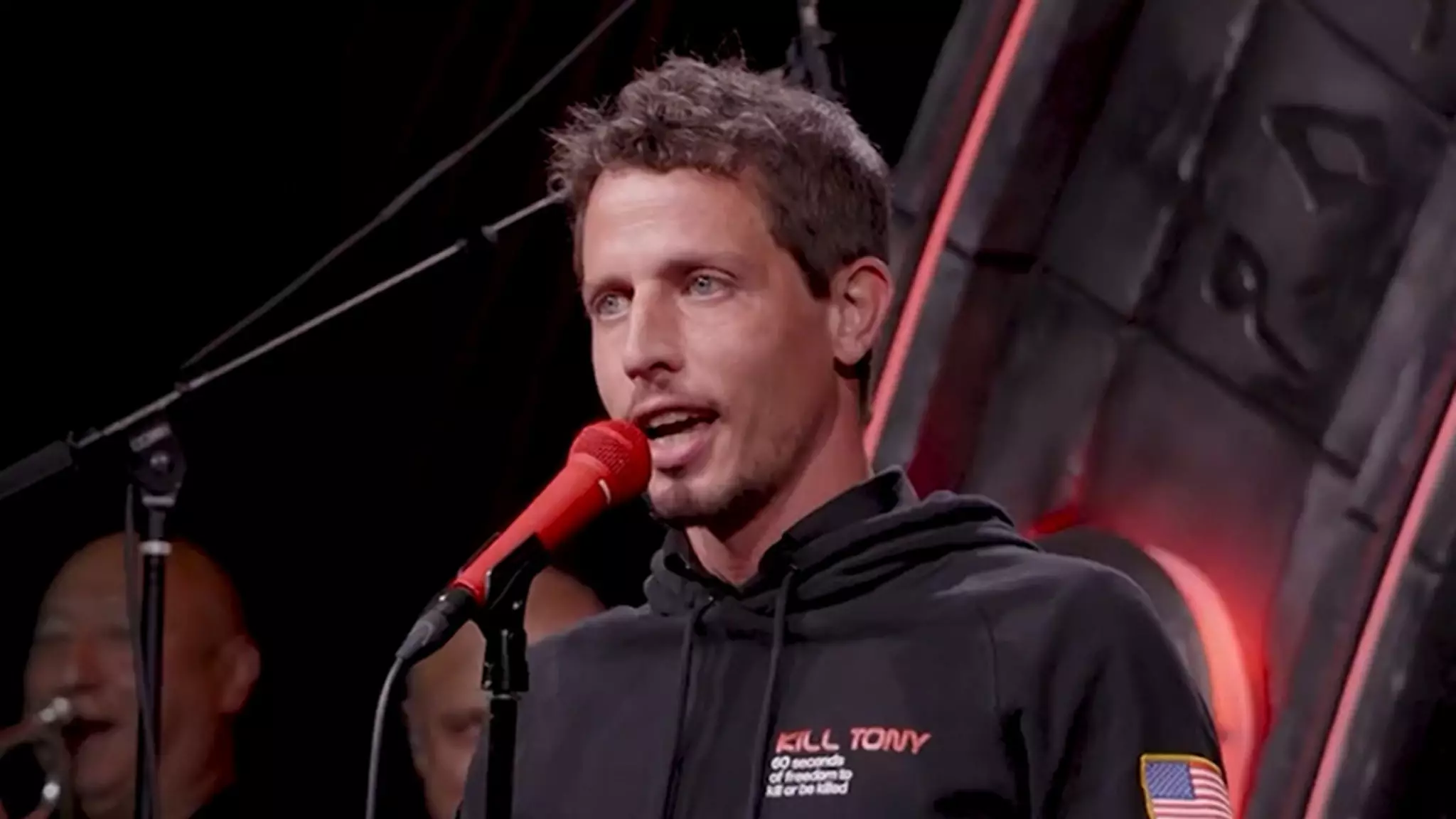In the world of stand-up comedy, the line between humor and insensitivity can often be perilously thin. Recent events surrounding comedian Tony Hinchcliffe illustrate this dichotomy starkly. Hinchcliffe, known for his brash humor and edgy content, faced considerable backlash following a joke made at a Donald Trump rally at Madison Square Garden. His comparison between Puerto Rico and a “floating island of garbage” not only sparked outrage online but also drew condemnation from various political figures and pundits. This incident provides a rich tapestry for exploring the implications of comedy when tied to political events and social sensitivity.
The essence of Hinchcliffe’s joke can be dissected from multiple angles. On one hand, it serves as an exaggerated commentary that employs shock value—an approach often embraced in modern comedy. However, this strategy can backfire spectacularly, especially when it targets vulnerable communities. Puerto Rico, still grappling with recovery from various crises, becomes an unfortunate target in a comedic landscape where insensitivity can overshadow intent. The reaction that followed indicates not only a lack of appreciation for comedic nuance but also a significant moment of societal reflection regarding race and politics.
The immediate fallout from Hinchcliffe’s quip was swift and unforgiving. Outrage came not just from fans and audience members but also from political circles, including advisors within Trump’s campaign. The criticism highlighted concerns over the potential alienation of Hispanic voters, a demographic that is crucial in the political landscape. This situation underscores how humor intersects with societal issues, creating a ripple effect that can directly influence public opinion and political strategy. The comedian’s association with a high-profile political figure like Trump only intensified the scrutiny, revealing the broader implication of how public figures must navigate their reputations in this divided climate.
Hinchcliffe’s Response
In response to the uproar, Hinchcliffe doubled down on his comments, leveraging his platform, “Kill Tony,” to address the criticism. His assertion that he “apologizes to absolutely nobody” exemplifies a common trope among comedians who embrace controversy. This defiance can be read as an effort to reinforce his comedic persona; however, it raises questions about accountability and the ethical responsibilities of comedians. Moreover, his begrudging acknowledgment of the venue’s inappropriate context indicates an understanding of the gravity behind the backlash, albeit laden with his characteristic bravado.
Ultimately, Hinchcliffe’s experience sheds light on a more significant issue within the realm of comedy: the potential consequences of jokes made in public gatherings, especially in politically charged environments. While comedy holds the power to spark dialogue and foster understanding, it also runs the risk of exacerbating societal divisions when it fails to consider its impact. As Hinchcliffe looks to navigate his career post-controversy, it remains to be seen whether this incident will inform a more nuanced approach to his humor or if it will simply fuel his appetite for provocative material.
Comedians like Hinchcliffe highlight the essential struggle inherent in balancing free expression with the moral obligations that come with invoking humor around sensitive subjects, reminding us of the complexities that define contemporary comedy.

